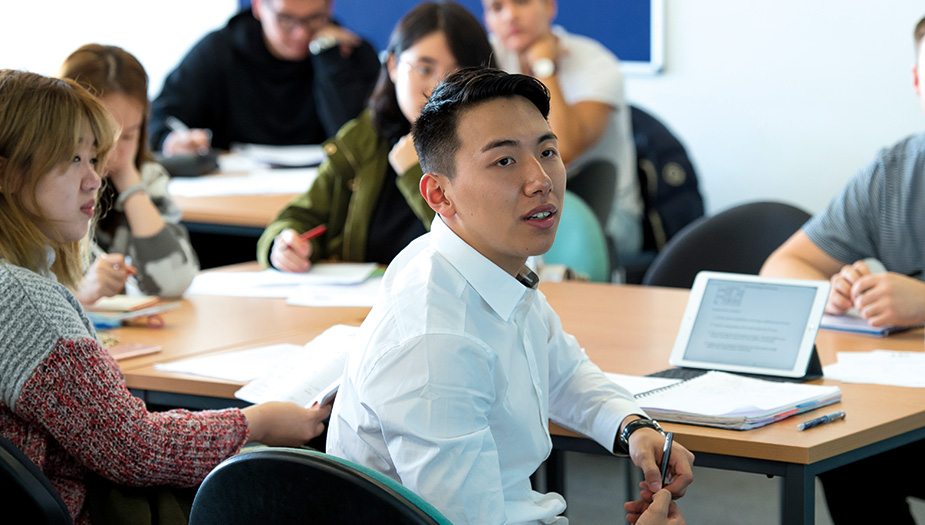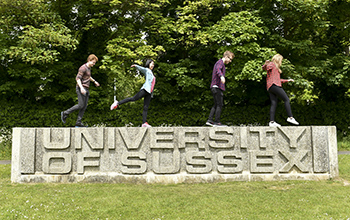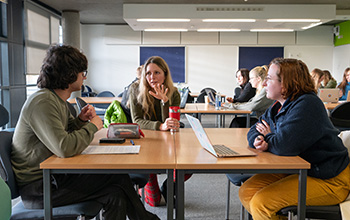Key information
Duration
3 years full time
Typical A-level offer
ABB-BBB, including Mathematics
UCAS code
L1G3
Start date
September 2027
Location
Why choose this course at Sussex?
- Gain a career advantage as an economist with data analytical and digital skills, and the confidence to tackle real-world challenges
- Learn to turn complex data into real-world insight, and gain the essential visualisation and presentation skills to communicate it effectively.
- Be ready for analyst roles in banking, research institutions, economic consultancies, think tanks, government policy advising and the Civil Service.
There is a growing demand for economists with digital and big data skills. This course will give you the practical skills, knowledge and confidence to tackle real-world challenges – from constructing socioeconomic policy to assessing individual behaviour.
At Sussex, we’re committed to making an innovative and transformative contribution to digital and data futures. You’ll learn from experts in the University of Sussex Business School and the School of Engineering and Informatics.
The course integrates emerging technologies, including simulations and adaptive learning platforms. You’ll explore:
- economic theory and the framing of complex problems
- applications of programming languages to address economic problems
- socioeconomic applications and implications of big data and AI.
From workshops to industry collaboration and field visits, you’ll apply your learning to real-world scenarios.
You’ll gain advanced data analytical skills and learn how to apply them to large data sets, as well as data communication, visualisation and presentation skills. This diverse skill set will open doors to many career opportunities. When you graduate, you’ll be ready for analyst roles in banking, research institutions, economic consultancies, government policy advising and more.
- Top 100 in the world for Economics and Business (US News & World Report Best Global Universities 2024-2025)
- Top 20 in the UK for Business and Economics (The Times Higher Education World University Rankings by Subject 2025)
- Top 200 in the world for Economics and Econometrics (QS World University Rankings by Subject 2025)
Accreditation
You'll join the EQUIS and AMBA-accredited University of Sussex Business School. Learn more about all of our course accreditations here. Find out more
Students not only gain theoretical knowledge but also develop the practical skills and mindset necessary to tackle real-world challenges in economics and data science.”Sambit Bhattacharyya
Professor of Economics
On campus - in person
You’ll study for this degree on our campus, joining our academics and fellow students. Combined with in-person contact time, digitally supported educational resources, library collections and independent study, this course is designed to give you an inclusive education. Your learning experience may also include work placements, field trips, studying abroad and internationalisation experiences.
Find out about our beautiful campus
Take our virtual tour
Be inspired by our beautiful campus and buzzing Brighton in this immersive 360° experience.
Begin your tour
Undergraduate Visit Days
Learn more about your chosen course, explore our distinctive campus, and meet our staff and students.
Book a Visit Day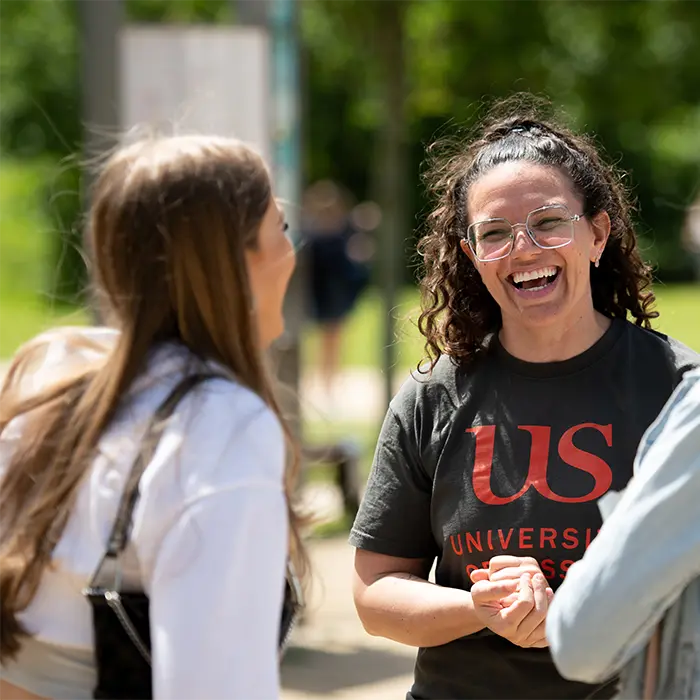
As a founding partner of ResearchPlus, a collaboration of research-focused universities, we engage with government, industry and civil society to support economic growth, prosperity and wellbeing across the whole of the UK.
Find out more
Modules
This is a joint-honours course, offering you a combinations of subjects, each taking up 50% of your time. Find out more from our guide to undergraduate study
-
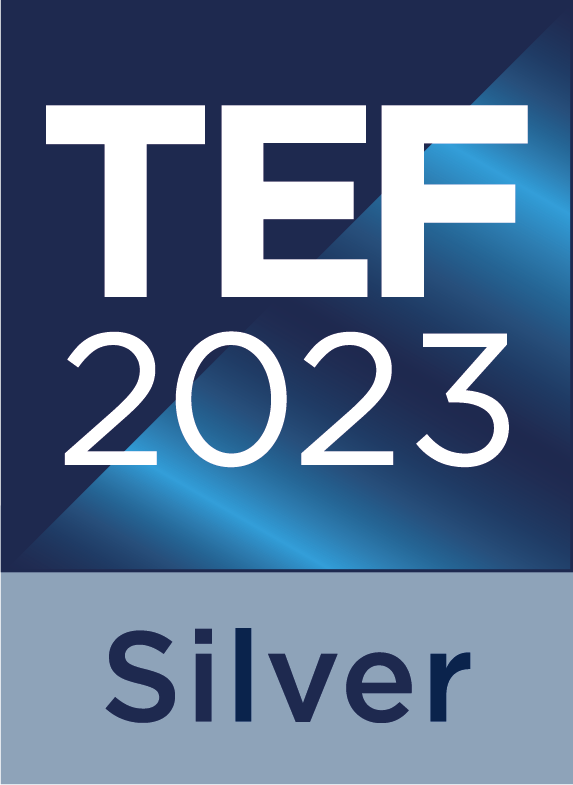 Silver
The student experience and student outcomes are typically very high quality.
Silver
The student experience and student outcomes are typically very high quality.
This rating was awarded in 2023, for four years. (Teaching Excellence Framework 2023)
Find out more about our approach to teaching and supporting you to thrive
-
Year 1 at Sussex
Your modules
Core modules
Core modules are taken by all students on the course. They give you a solid grounding in your chosen subject and prepare you to explore the topics that interest you most.
Autumn teaching
- Contemporary Economic Issues
- Introduction to Economics
- Introduction to Mathematics for Finance and Economics
- Programming Concepts
Spring teaching
- Applied Mathematics for Economists
- Business School Career Preparation
- Data Structures & Algorithms
- Macroeconomics 1
- Microeconomics 1
Your degree
You get introduced to the core principles of economics and strengthen your applied mathematical skills. Exploring programming concepts, you’ll learn about algorithmic problem solving. You’ll explore the fundamentals of data structures hands-on in lab learning.
Teaching
Teaching methods typically include lectures, seminars and practicals/workshops.
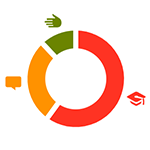
60%: Lecture
28%: Seminar
12%: Practical
Assessment
Assessment methods typically include examinations and coursework.
Contact hours and workload
This year of study includes approximately 1,200 hours of work. This breaks down into about 240 hours of contact time and about 960 hours of independent study.
Engage and actively participate throughout your studies to get the most out of your course.
-
Year 2 at Sussex
Your modules
Core modules
Core modules are taken by all students on the course. They give you a solid grounding in your chosen subject and prepare you to explore the topics that interest you most.
Autumn teaching
Spring teaching
Options
Alongside your core modules, you can choose options to broaden your horizons and tailor your course to your interests. This list gives you a flavour of our options, which are kept under review and may change, for example in response to student feedback or the latest research.
While it’s our aim for students to take their preferred combinations of options, this can’t be guaranteed and will be subject to timetabling. Options may be grouped and if so, students will be able to choose a set number of options from the selection available in any particular group.
Autumn teaching
Spring teaching
Your degree
You’ll move on to more advanced study and explore real-world applications. Alongside developing your skills in statistics and econometrics, you can choose to study microeconomic or macroeconomic theory in more detail. You’ll continue your journey into data science, data coding and visualisation applications in economics, and applied machine learning techniques.
Teaching
Teaching methods typically include lectures, seminars and practicals/workshops.
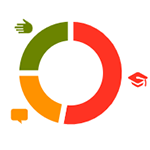
53%: Lecture
22%: Seminar
25%: Practical
Assessment
Assessment methods typically include examinations, coursework and a practicals/project.
Contact hours and workload
This year of study includes approximately 1,200 hours of work. This breaks down into about 240 hours of contact time and about 960 hours of independent study.
Engage and actively participate throughout your studies to get the most out of your course.
-
Experience Year
Study abroad (optional)
Apply to study abroad – you’ll develop an international perspective and gain an edge when it comes to your career. Find out where your course could take you
If your application to study abroad is successful, you’ll have to meet the academic requirements at Sussex and also at the partner university. Find out more about studying abroad as a Sussex student
Placement (optional)
To help you gain experience and increase your employability, you can apply for an optional placement as part of your course. You’ll be responsible for applying for and securing your placement. Our dedicated careers team can provide you with information and advice. If you’re successful in obtaining a placement, this will form part of your course.
Find out more about placements and internships
Please note that if you’re receiving – or applying for – USA federal Direct Loan funds, you can’t transfer to the version of your course with an optional study abroad period in any country or optional placement in the USA if the number of credits for the placement/internship exceeds 25% of the total credits for your course. Find out more about American Student Loans and Federal Student Aid
Venture Creation Year (optional)
Do you want to develop your entrepreneurial skills, and explore business or a social enterprise start-up? As a University of Sussex Business School undergraduate on this course, you can apply to take a Venture Creation Year.
During the Venture Creation Year, you’ll set up and run your own start-up or social enterprise. This will help you gain practical skills and experience. You’ll have the University’s support throughout the year, including:
- one-to-one coaching
- specialist workshops
- networking and mentor access
- funding competitions
- online resources.
For more details, visit Business School: Venture Creation Year
Please note that you can’t take two experience years or combine them.
Selection for the Venture Creation Year is competitive and there’s a limited number of places available.
Due to visa restrictions on business activity, international students studying on a Tier 4 Student visa cannot take part in the Venture Creation Year. However, all students can participate in Careers and Entrepreneurship workshops, get one-to-one guidance, and continue to develop their ideas.
-
Year 3 at Sussex
Your modules
Core modules
Core modules are taken by all students on the course. They give you a solid grounding in your chosen subject and prepare you to explore the topics that interest you most.
Autumn teaching
Autumn and spring teaching
Spring teaching
Options
Alongside your core modules, you can choose options to broaden your horizons and tailor your course to your interests. This list gives you a flavour of our options, which are kept under review and may change, for example in response to student feedback or the latest research.
While it’s our aim for students to take their preferred combinations of options, this can’t be guaranteed and will be subject to timetabling. Options may be grouped and if so, students will be able to choose a set number of options from the selection available in any particular group.
Autumn teaching
- Experimental Economics: Markets, Games And Strategic Behaviour
- International Trade
- Topics in Growth and Inequality
Spring teaching
Your degree
Applied modules in economics and applications of data science, machine learning and text analysis will help you bring your skills and learning together. From growth and inequality to economics of crime, you’ll have the opportunity to broaden your knowledge in specialised areas. You’ll also write a dissertation on an applied topic.
Teaching
Teaching methods typically include lectures, seminars and practicals/laboratory.
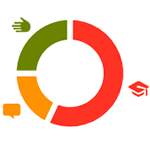
57%: Lecture
18%: Seminar
25%: Practical
Assessment
Assessment methods typically include examinations, coursework and a practicals/project.
Contact hours and workload
This year of study includes approximately 1,200 hours of work. This breaks down into about 200 hours of contact time and about 1,000 hours of independent study.
Engage and actively participate throughout your studies to get the most out of your course.
Spirit of Sussex Award
Feel involved in life at the University, make friends and enrich your experience with us – the Spirit of Sussex Award is our way of recognising your extracurricular and voluntary achievements.
-
Video transcript
Hi everyone! As I'm sure you've all heard by now, the Spirit of Sussex Award is now live.
Students across the Sussex community are already earning their points
What will you do to earn yours?
There's so many ways to get involved.
Head over to the website to start your Spirit of Sussex journey.
Text: The Spirit of Sussex Award is an exciting new programme designed to recognise and celebrate the things you do outside your course.
Participating in the Award makes it easy and fun for you to get involved and make the most of university life.
We regularly review our modules to incorporate student feedback, staff expertise, as well as the latest research and teaching methodology. We’re planning to run these modules in the academic year 2026/27. However, there may be changes to these modules in response to feedback, staff availability, student demand or updates to our curriculum. We’ll make sure to let you know of any material changes to modules at the earliest opportunity.
We’ll do our best to provide as much optional choice as we can, but timetabling constraints mean it may not be possible to take some module combinations. The structure of a small number of courses means that the order of modules or the streams you choose may determine whether modules are core or optional. This means that your core modules or options may differ from what’s shown here.
Check back in January 2027 for more details of the modules running in the academic year 2027/28.
Our experts
Careers
- 86% of Sussex undergraduates have completed work experience by the end of their course (University of Sussex Career Readiness data at point of graduation 2023/24)
You’ll develop communication, analytical, software and numeracy skills. These skills mean you could go into a wide range of graduate jobs, including in:
- banking
- research institutions
- economic consultancies
- think tanks
- government policy advising
- the Civil Service.
Based in the University of Sussex Business School, you’ll get extensive career support. This includes connecting you with employers, alumni mentoring, networking, guest lectures and workplace skills development.
The University of Sussex Business School is home to the UK Trade Policy Observatory (UKTPO). This leading independent group analyses the UK’s trading future after Brexit. We also have the Bloomberg Financial Markets Lab where you can access real-time data from the Bloomberg Professional services platform.
The active Economics Society at Sussex also provides further networking opportunities. The Society invites guest speakers and runs events that bring together Economics students and others who share an interest in economics.
Where do our graduates work now?
Surveyed 15 months after finishing their courses, our recent graduates from the Department of Economics worked for employers including:
- American Express
- Barclays
- Bloomberg
- Deloitte
- Department for Business & Trade
- EDF
- Food Standards Agency
- Grant Thornton
- Home Office
- HSBC
- KPMG
- Kubrick
- Lloyds
- Nationwide
- Carbon Trust
- The Walt Disney Company
- Zurich.
(Graduate Outcomes Survey 2017-2022)
Working while you study
Our Careers and Entrepreneurship team can help you find part-time work while you study. Find out more about career development and part-time work
Design your future at Sussex
Taking the next step in your career can feel daunting, but we’ll help you to explore, connect and flourish throughout your studies and beyond.
As a Sussex student, you’ll learn how to tackle real-world challenges and have access to tailored programmes of careers support:
- our Career Lab helps you to explore your options, build key skills and connect with employers. Take part in internships, community consultancy projects and insight visits, where you can learn about life at organisations including Brighton & Hove Albion Football Club, Gatwick Airport and the Knepp Rewilding Project
- one-to-one appointments with your Faculty Careers Consultant can enable you to identify your career goals, write an effective CV and prepare for future interviews
- entrepreneurship initiatives like StartUp Sussex and Ideas Lab can empower you to turn your concepts into reality.
Explore how our Careers and Entrepreneurship team can support you
-
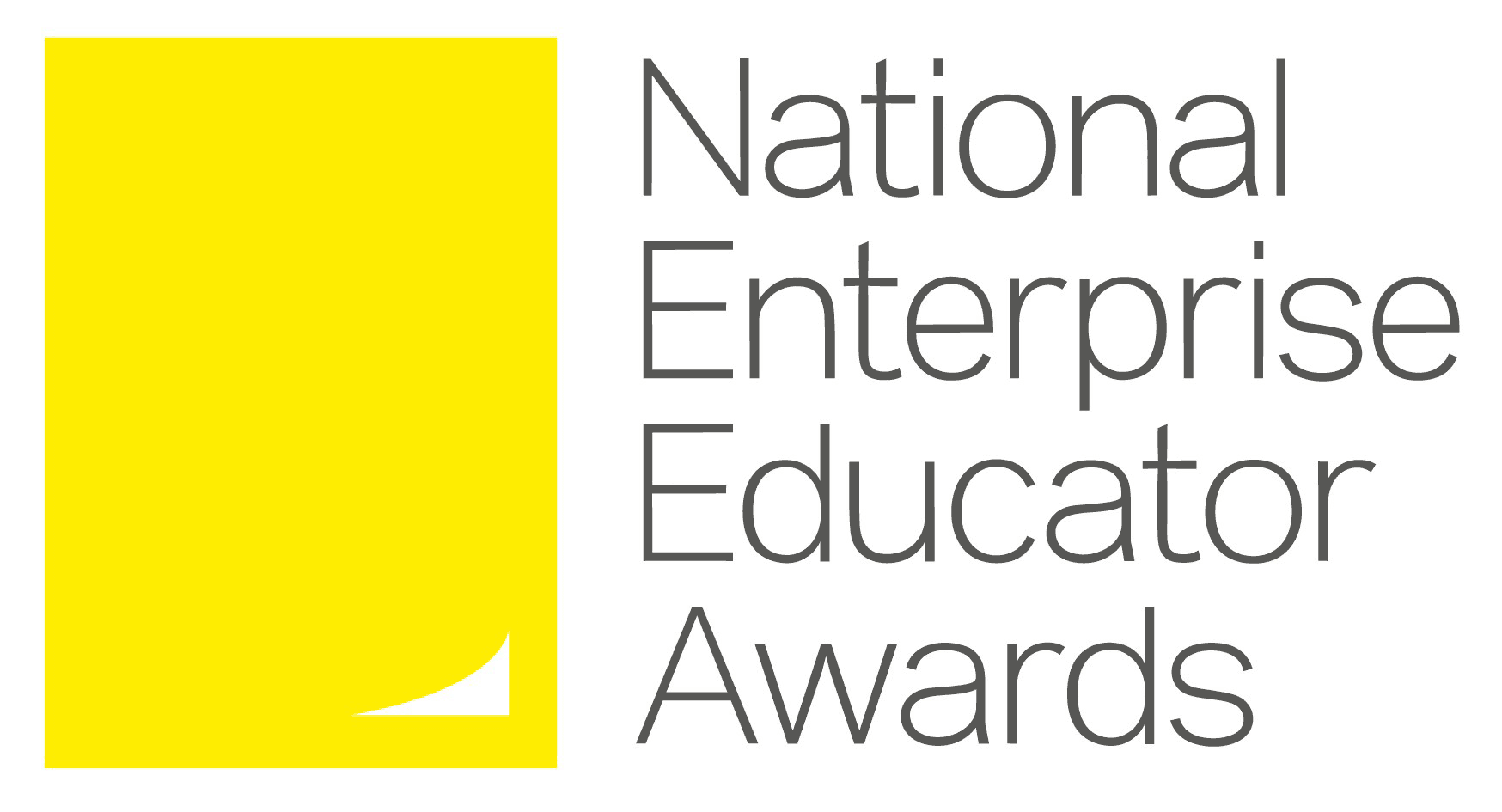 Winner
Entrepreneurship Catalyst Award
National Enterprise Educator Awards 2024
Winner
Entrepreneurship Catalyst Award
National Enterprise Educator Awards 2024
-
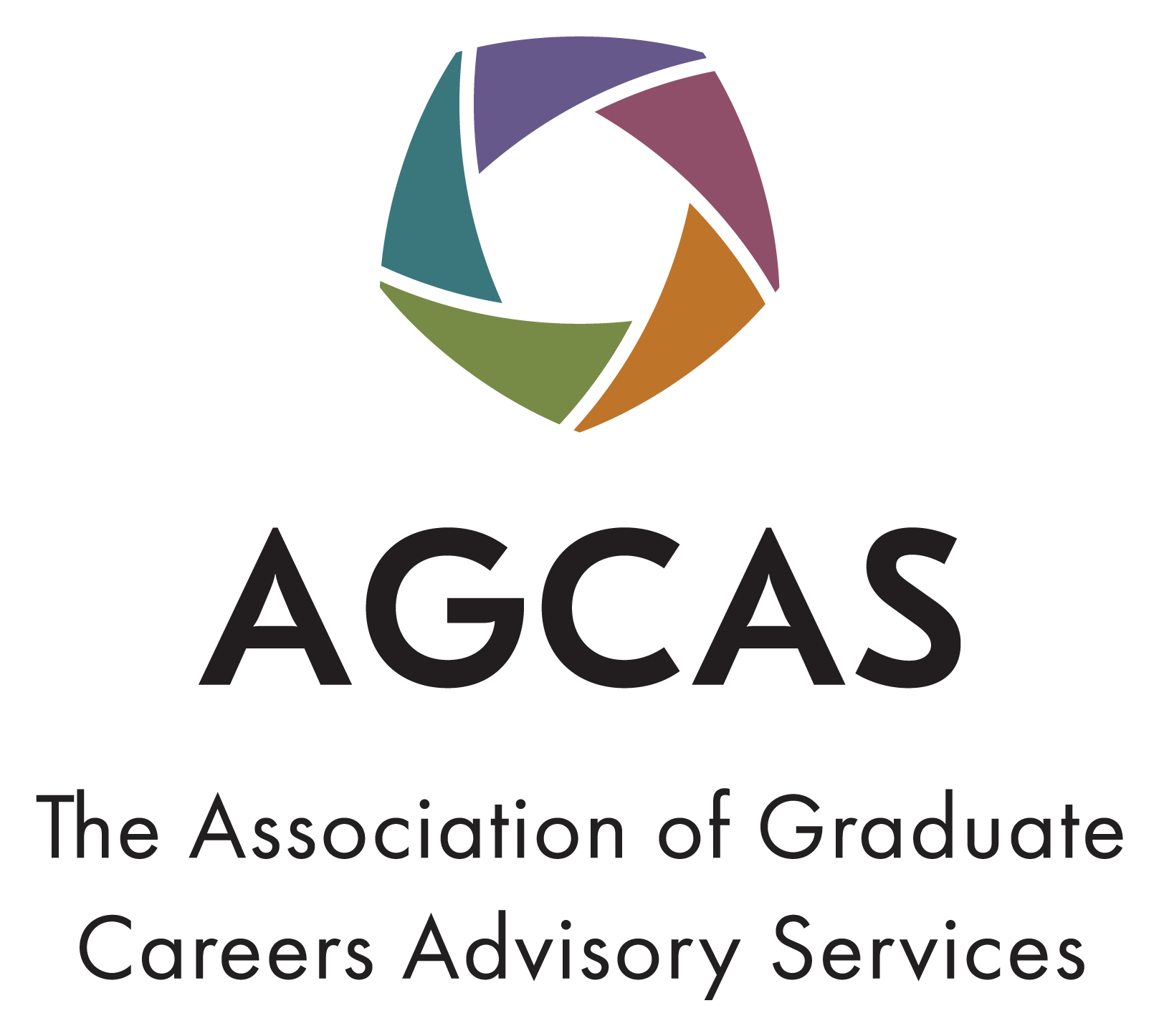 Winner
Supporting Student and Graduate Employability Award
AGCAS Awards for Excellence 2024
Winner
Supporting Student and Graduate Employability Award
AGCAS Awards for Excellence 2024
-
 Top 50
Best Universities for Work Experience in the UK
2025 Higherin Awards
Top 50
Best Universities for Work Experience in the UK
2025 Higherin Awards
Entry requirements
A-level
| Typical offer | ABB-BBB, including Mathematics |
|---|---|
| Contextual offer | View contextual offer Not everyone has the same support to get to higher education – we help you reach your potential. When we receive applications through UCAS, we consider all factors and will sometimes make contextual offers as part of our Access and Participation Plan |
| Subjects | A-levels must include Mathematics |
| GCSEs | You should have a broad range of GCSEs grade 9-4 (A*-C), including good grades in relevant subjects. |
| Extended Project Qualification | We take the EPQ into account when considering your application and it can be useful in the summer when your results are released if you have narrowly missed the conditions of your offer. We do not routinely include the EPQ in the conditions of your offer but we sometimes offer alternative conditions that include the EPQ. If you wish to discuss this further please contact us |
Additional UK qualifications
Access to HE Diploma
| Typical offer | Pass Diploma with at least 39 level 3 credits at Merit or above including 24 credits at Distinction |
|---|---|
| Subjects | You will need A-level Mathematics, normally with grade B, in addition to the Access to HE Diploma. |
Cambridge Pre-U Principal Subjects (including A-level mixes)
| Typical offer | M1 M2 M2 If you have one A-level and two Cambridge Pre-U Principal Subjects we would expect you to have grade grade A at A-level and, M2 and M2 in two Pre-Us. If you have two A-levels and a Cambridge Pre-U Principal Subject we would normally expect you to have grades AB at A-level and M2 in Pre-U. |
|---|---|
| Subjects | Either your A-levels or Principal Subjects must include Mathematics |
| GCSEs | You should have a broad range of GCSEs grades 9-4 (A*-C), including good grades in relevant subjects. |
International Baccalaureate
| Typical offer | 32 points overall from the full IB Diploma. |
|---|---|
| Subjects | Higher Levels must include Mathematics, with a grade of 5. For entry, either Mathematics: Analysis and Approaches or Mathematics: Applications and Interpretation at Higher Level will be accepted. |
Pearson BTEC Level 3 National Diploma and one A-level
| Typical offer | Grade B in A-level and Distinction, Distinction in Pearson BTEC Level 3 National Diploma.
|
|---|---|
| Contextual offer | View contextual offer Not everyone has the same support to get to higher education – we help you reach your potential. When we receive applications through UCAS, we consider all factors and will sometimes make contextual offers as part of our Access and Participation Plan |
| Subjects | Your A-level must be in Mathematics. |
| GCSEs | You should have a broad range of GCSEs 9-4 (A*-C), including good grades in relevant subjects. |
Pearson BTEC Level 3 National Extended Certificate and two A-levels
| Typical offer | Grades BB in A-levels and Distinction in Pearson BTEC Level 3 National Extended Certificate. |
|---|---|
| Contextual offer | View contextual offer Not everyone has the same support to get to higher education – we help you reach your potential. When we receive applications through UCAS, we consider all factors and will sometimes make contextual offers as part of our Access and Participation Plan |
| Subjects | A-levels must include Mathematics. |
| GCSEs | You should have a broad range of GCSEs grade 9-4 (A*-C), including good grades in relevant subjects. |
Scottish Highers
| Typical offer | AABBB
|
|---|---|
| Subjects | Highers must include Mathematics, grade B. Ideally, you will also have an Advanced Higher in Mathematics (grade B). |
Welsh Baccalaureate Advanced
| Typical offer | ABB from the Advanced Welsh Baccalaureate Skills Challenge Certificate and two A-levels, including Mathematics at grade B. |
|---|---|
| Contextual offer | View contextual offer Not everyone has the same support to get to higher education – we help you reach your potential. When we receive applications through UCAS, we consider all factors and will sometimes make contextual offers as part of our Access and Participation Plan |
| Subjects | A-levels must include Mathematics. |
| GCSEs | You should have a broad range of GCSEs grade A*-C (9-4), including good grades in relevant subjects. |
International Baccalaureate
| Typical offer | 32 points overall from the full IB Diploma. |
|---|---|
| Subjects | Higher Levels must include Mathematics, with a grade of 5. For entry, either Mathematics: Analysis and Approaches or Mathematics: Applications and Interpretation at Higher Level will be accepted. |
European Baccalaureate
| Typical offer | Overall result of at least 77%. |
|---|---|
| Additional requirements | Evidence of existing academic ability in Mathematics to a high level is essential (normally with a final grade of at least 8.0). |
Additional international qualifications
Australia
| Typical offer | Relevant state (Year 12) High School Certificate, and between 88% to 85% in the ATAR or UAI/TER/ENTER, or a Queensland OP of 4 to 5 or better. |
|---|---|
| Additional requirements | Evidence of existing academic ability in Mathematics to a high level is essential. Our entry requirements are guidelines and we assess all applications on a case-by-case basis.
|
Austria
| Typical offer | Reifeprüfung or Matura with an overall result of between 2.0 to 2.2 or better for first-year entry. |
|---|---|
| Additional requirements | Evidence of existing academic ability in Mathematics to a high level is essential. Our entry requirements are guidelines and we assess all applications on a case-by-case basis. |
Belgium
| Typical offer | Certificat d'Enseignement Secondaire Supérieur (CESS) or Diploma van Hoger Secundair Onderwijs with a good overall average. |
|---|---|
| Subject-specific knowledge | Evidence of existing academic ability in Mathematics at a high level is essential. |
| Please note | Our entry requirements are guidelines and we assess all applications on a case-by-case basis. |
Bulgaria
| Typical offer | Diploma za Sredno Obrazovanie with excellent final-year scores (normally 5.5 overall with 6 in key subjects). |
|---|---|
| Additional requirements | Evidence of existing academic ability in Mathematics to a high level is essential. Our entry requirements are guidelines and we assess all applications on a case-by-case basis.
|
Canada
| Typical offer | Ontario Secondary School Diploma (OSSD) 70%-75% from 6 grade 12 U, U/C or M courses. British Columbia Certificate of Graduation AABBB-BBBBB from 5 grade 12 courses. We also recognise the High School Diploma from other provinces -including Alberta, Manitoba, New Brunswick- where we look for strong performance in grade 12 subjects, and the Diplome d'Etudes Collegiales (DEC) from Quebec. |
|---|---|
| Additional requirements | Evidence of existing academic ability in Mathematics to a high level is essential. Our entry requirements are guidelines and we assess all applications on a case-by-case basis. |
China
| Typical offer | If you have the Goakao, we will consider applications for direct entry to first year. You would normally need an overall average of 75%, including required subjects. We are also pleased to consider applications if you are following a recognised International Foundation Year or you have one or more years of Higher Education in China at a recognised degree awarding institution. The Senior High School Graduation alone would not be sufficient for entry to our undergraduate degrees, but you may be eligible to apply for our International Foundation Year. If you successfully complete an International Foundation Year, you can progress on to a relevant undergraduate course at Sussex. Check which qualifications the International Study Centre accepts for the International Foundation Year. |
|---|---|
| Subject-specific knowledge | Evidence of existing academic ability in Mathematics at a high level is essential. |
| Please note | Our entry requirements are guidelines and we assess all applications on a case-by-case basis. |
Croatia
| Typical offer | Maturatna Svjedodžba with an overall score of between 4 and 4.2 |
|---|---|
| Additional requirements | Evidence of existing academic ability in Mathematics to a high level is essential. Our entry requirements are guidelines and we assess all applications on a case-by-case basis. |
Cyprus
| Typical offer | Apolytirion of Lykeion with an overall average of between 18/20 and 18.5/20 will be considered for first-year entry.
|
|---|---|
| Additional requirements | Evidence of existing academic ability in Mathematics to a high level is essential. Our entry requirements are guidelines and we assess all applications on a case-by-case basis. |
Czech Republic
| Typical offer | Maturita with a good overall average. |
|---|---|
| Subject-specific knowledge | Evidence of existing academic ability in Mathematics at a high level is essential. |
| Please note | Our entry requirements are guidelines and we assess all applications on a case-by-case basis. |
Denmark
| Typical offer | Højere Forberedelseseksamen (HF) or Studentereksamen with an overall average of at least 7 on the new grading scale. |
|---|---|
| Additional requirements | Evidence of existing academic ability in Mathematics to a high level is essential. Our entry requirements are guidelines and we assess all applications on a case-by-case basis. |
Finland
| Typical offer | Pass Ylioppilastutkinto with overall final result between MMMM - EMMM |
|---|---|
| Additional requirements | Evidence of existing academic ability in Mathematics to a high level is essential. Our entry requirements are guidelines and we assess all applications on a case-by-case basis.
|
France
| Typical offer | French Baccalauréat with overall final result between 12/20 and 13/20. |
|---|---|
| Additional requirements | You will need to be taking the science strand within the French Baccalauréat with a final result of at least 14/20 in Mathematics. |
Germany
| Typical offer | German Abitur with an overall result of 2.0 to 2.2 or better. |
|---|---|
| Additional requirements | You will need a very good final result in Mathematics (at least 12/15) at a high level. |
Greece
| Typical offer | Apolytirion with an overall average of between 18 and 18.5 will be considered for first-year entry. You must also have either Apolytirion pathway in Mathematics with a score of 19 or the Pan Hellenic in Mathematics with an overall score of 17. |
|---|---|
| Additional requirements | Our entry requirements are guidelines and we assess all applications on a case-by-case basis. |
Hong Kong
| Typical offer | Hong Kong Diploma of Secondary Education (HKDSE) with grades of 5, 4, 4 to 4, 4, 4 from three subjects including two electives. |
|---|---|
| Additional requirements | You must have some advanced/higher level ability in Mathematics, and will need to complete both the Compulsory and Extended Mathematics components. Our entry requirements are guidelines and we assess all applications on a case-by-case basis. |
Hungary
| Typical offer | Erettsegi/Matura with a good average of at least 55544. |
|---|---|
| Additional requirements | Evidence of existing academic ability in Mathematics to a high level is essential. Our entry requirements are guidelines and we assess all applications on a case-by-case basis. |
India
| Typical offer | Standard XII results for entry into 1st year (depending on board and course choice):
We will also consider students for entry into our integrated foundation years with 60+% |
|---|---|
| Additional requirements | Evidence of existing academic ability in Mathematics to a high level is essential. Our entry requirements are guidelines and we assess all applications on a case-by-case basis. |
Iran
| Typical offer | Where direct entry is unsuitable, we'll automatically consider you for one of our Foundation Years. Or you might want to apply to one of our International Foundation Years at the international Study Centre on Campus. Visit isc.sussex.ac.uk/our-courses/international-foundation-year or www.sussex.ac.uk/study/undergraduate/courses/foundation-years |
|---|---|
| Subject-specific knowledge | Evidence of existing academic ability in Mathematics at a high level is essential. |
| Please note | Our entry requirements are guidelines and we assess all applications on a case-by-case basis. |
Ireland
| Typical offer | Irish Leaving Certificate (Higher Level) at H1,H2,H2,H3,H3 to H2,H2,H2,H3,H3. |
|---|---|
| Additional requirements | Highers must include Mathematics, grade H1. |
Israel
| Typical offer | For first year entry at least 80% (or 8/10) in at least 6 subjects, including one 5 unit subject, in one sitting of the Bagrut. |
|---|---|
| Additional requirements | Evidence of existing academic ability in Mathematics to a high level is essential. Our entry requirements are guidelines and we assess all applications on a case-by-case basis. |
Italy
| Typical offer | Italian Diploma Di Maturità or Diploma Pass Di Esame Di Stato with a final Diploma mark of between 78/100 and 81/100. |
|---|---|
| Additional requirements | Evidence of existing academic ability in Mathematics to a high level is essential. Our entry requirements are guidelines and we assess all applications on a case-by-case basis. |
Japan
| Typical offer | Where direct entry is unsuitable, we'll automatically consider you for one of our Foundation Years. Or you might want to apply to one of our International Foundation Years at the international Study Centre on Campus. Visit isc.sussex.ac.uk/our-courses/international-foundation-year or www.sussex.ac.uk/study/undergraduate/courses/foundation-years |
|---|---|
| Subject-specific knowledge | Evidence of existing academic ability in Mathematics at a high level is essential. |
| Please note | Our entry requirements are guidelines and we assess all applications on a case-by-case basis. |
Kazakhstan
| Typical offer | Applicants with Nazarbayev Intellectuals Schools (NIS) Grade 12 Certificate may be considered. The grades in the offer will match the published A level requirements for each course. |
|---|---|
| Additional requirements | Where courses have specific subject requirements, these will be expected to be studied at Advanced level. |
| Subject-specific knowledge | Evidence of existing academic ability in Mathematics at a high level is essential. |
| Please note | Our entry requirements are guidelines and we assess all applications on a case-by-case basis. |
Latvia
| Typical offer | Atestats par Visparejo videjo Izglitibu with very good grades in state exams. |
|---|---|
| Subject-specific knowledge | Evidence of existing academic ability in Mathematics at a high level is essential. |
| Please note | Our entry requirements are guidelines and we assess all applications on a case-by-case basis. |
Lithuania
| Typical offer | Brandos Atestatas including scores of 80-90% in at least three state examinations (other than English). |
|---|---|
| Subject-specific knowledge | Evidence of existing academic ability in Mathematics at a high level is essential. |
| Please note | Our entry requirements are guidelines and we assess all applications on a case-by-case basis. |
Luxembourg
| Typical offer | Pass the Diplome de Fin d’Etudes Secondaires with between 43-46 points overall. |
|---|---|
| Additional requirements | Evidence of existing academic ability in Mathematics to a high level is essential. Our entry requirements are guidelines and we assess all applications on a case-by-case basis.
|
Malaysia
| Typical offer | at least Sijil Tinggi Persekolahan Malaysia (STPM) with grades of BBB, Matriculation with a least a grade of 3.0 or UEC with an overall average grade B4 (70%) from 6 subjects. |
|---|---|
| Additional requirements | Evidence of existing academic ability in Mathematics to a high level is essential. Our entry requirements are guidelines and we assess all applications on a case-by-case basis. |
Netherlands
| Typical offer | Voorereidend Wetenschappelijk Onderwijs (VWO), normally with an average of at least 7. |
|---|---|
| Additional requirements | Evidence of existing academic ability in Mathematics to a high level is essential. Our entry requirements are guidelines and we assess all applications on a case-by-case basis.
|
Nigeria
| Typical offer | You are expected to have one of the following:
You must also have a score of C6 or above in WAEC/SSC English. Where direct entry is unsuitable, we'll automatically consider you for one of our Foundation Years. Or you might want to apply to one of our International Foundation Years at the international Study Centre on Campus. Visit isc.sussex.ac.uk/our-courses/international-foundation-year or www.sussex.ac.uk/study/undergraduate/courses/foundation-years |
|---|---|
| Subject-specific knowledge | Evidence of existing academic ability in Mathematics at a high level is essential. |
| Please note | Our entry requirements are guidelines and we assess all applications on a case-by-case basis. |
Norway
| Typical offer | Norwegian Vitnemal Fra Den Videregaende Opplaering - Pass with an overall average of 4. |
|---|---|
| Additional requirements | Evidence of existing academic ability in Mathematics to a high level is essential. Our entry requirements are guidelines and we assess all applications on a case-by-case basis. |
Pakistan
| Typical offer | You can apply for direct entry to Year 1 if you are completing at least two years of Bachelor degree studies. You'll normally need to complete a Foundation year after taking Intermediate Certificate or the Higher Secondary Certificate (HSC). You might choose one of our International Foundation Years at the International Study Centre on campus. |
|---|---|
| Additional requirements | Evidence of existing academic ability at a high level in Mathematics is essential. |
Poland
| Typical offer | Pass Matura with least 3 Extended level subjects including Mathematics in the 75th percentile.
|
|---|---|
| Additional requirements | Please note: Our entry requirements are guidelines and we assess all applications on a case-by-case basis. |
Portugal
| Typical offer | Diploma de Ensino Secundario normally with an overall mark between 16/20 and 17/20. |
|---|---|
| Additional requirements | Evidence of existing academic ability in Mathematics to a high level is essential. Our entry requirements are guidelines and we assess all applications on a case-by-case basis. |
Romania
| Typical offer | Diploma de Bacalaureat with an overall average between 8.0 and 8.5 including a score of 8 in Mathematics. |
|---|---|
| Additional requirements | Our entry requirements are guidelines and we assess all applications on a case-by-case basis. |
Russia
| Typical offer | Applicants who have good grades in the Attestat o Srednem Obrazovami (Certificate of Secondary Education) and who have successfully completed the first year of a Russian University degree, with a minimum GPA of 4.0, will be considered for admission to the first year of our bachelor’s degree courses. |
|---|---|
| Subject-specific knowledge | Evidence of existing academic ability in Mathematics at a high level is essential. |
| Please note | Our entry requirements are guidelines and we assess all applications on a case-by-case basis. |
Singapore
| Typical offer | A-levels, as well as certain certificates and diplomas. |
|---|---|
| Subject-specific knowledge | Evidence of existing academic ability in Mathematics at a high level is essential. |
| Please note | Our entry requirements are guidelines and we assess all applications on a case-by-case basis. |
Slovakia
| Typical offer | Pass Vysvedčenie o maturitnej skúške (Maturita) with an average grade above 2.0 from 4 subjects including Mathematics. |
|---|---|
| Additional requirements | Please note: Our entry requirements are guidelines and we assess all applications on a case-by-case basis. |
Slovenia
| Typical offer | Secondary School Leaving Diploma or Matura with at least 23 points overall. |
|---|---|
| Additional requirements | Evidence of existing academic ability in Mathematics to a high level is essential. Our entry requirements are guidelines and we assess all applications on a case-by-case basis. |
South Africa
| Typical offer | National Senior Certificate with very good grades. |
|---|---|
| Subject-specific knowledge | Evidence of existing academic ability in Mathematics at a high level is essential. |
| Please note | Our entry requirements are guidelines and we assess all applications on a case-by-case basis. |
Spain
| Typical offer | Spanish Título de Bachillerato (LOGSE) with an overall average result between 7.5 and 8.0. |
|---|---|
| Additional requirements | Evidence of existing academic ability in Mathematics to a high level is essential. Our entry requirements are guidelines and we assess all applications on a case-by-case basis. |
Sri Lanka
| Typical offer | Sri Lankan A-levels. |
|---|---|
| Subject-specific knowledge | Evidence of existing academic ability in Mathematics at a high level is essential. |
| Please note | Our entry requirements are guidelines and we assess all applications on a case-by-case basis. |
Sweden
| Typical offer | Fullstandigt Slutbetyg/Högskoleförberedande Examen with a total of 2,500 credits to include B grades in the majority of subjects and to include grade B in Mathematics.
|
|---|---|
| Additional requirements | Our entry requirements are guidelines and we assess all applications on a case-by-case basis. |
Switzerland
| Typical offer | Federal Maturity Certificate. Please note: Our entry requirements are guidelines and we assess all applications on a case-by-case basis. |
|---|---|
| Additional requirements | You must have a good level of Mathematics. |
Turkey
| Typical offer | We'll consider students who have taken the Lise Diplomasi or Lise Bitirme, with a score of at least 4/5 or 80/100 in their final year, on a case by case basis for direct entry to year 1. Where direct entry is unsuitable, we'll automatically consider you for one of our Foundation Years. Or you might want to apply to one of our International Foundation Years at the international Study Centre on Campus. Visit isc.sussex.ac.uk/our-courses/international-foundation-year or www.sussex.ac.uk/study/undergraduate/courses/foundation-years |
|---|---|
| Additional requirements | Evidence of existing academic ability in Mathematics to a high level is essential. Our entry requirements are guidelines and we assess all applications on a case-by-case basis.
|
USA
| Typical offer | We look at your full profile considering everything you are studying, including the High School Graduation Diploma, Grade 12 GPA, SAT tests and subject tests and/or ACT grades and AP tests. We expect to see a combination of these qualifications. Alongside your High School Graduation Diploma, we would ideally like to see 3 good AP scores with either, a combined SAT test score (evidence-based reading and writing and mathematics) of 1300, or a combined ACT score of 26 AP and SAT Subject tests Please check the individual course pages for our typical A-level offer and see below for the corresponding scores we would require from AP test scores:
We will also accept a combination of any 3 AP tests and SAT subject test where a score of 600 in an SAT subject test can be substituted for an AP test in the above table If you are applying for a degree with an A level subject requirement in Mathematics, Physics, Chemistry or Biology will normally need to hold an AP test in that subject. College level credits We also accept college level 3-credit courses in academic subjects as the equivalent of a UK A Level on a case by case basis. These can be combined with AP tests and or SAT subject tests Associate degrees An Associate degree with a GPA of 3.0 will meet our entry requirements for year 1. Foundation Year entry Students who have a High School Diploma and SAT or ACT tests only would be eligible to apply for our Foundation Year
| ||||||||||
|---|---|---|---|---|---|---|---|---|---|---|---|
| Additional requirements | Evidence of existing academic ability in Mathematics to a high level is essential. Our entry requirements are guidelines and we assess all applications on a case-by-case basis. |
My country is not listed
If your qualifications aren’t listed or you have a question about entry requirements, contact us
English language requirements
IELTS (Academic)
6.0 overall, including at least 5.5 in each component
Check your IELTS qualification meets all of our language requirements
IELTS scores are valid for two years from the test date. You cannot combine scores from more than one sitting of the test. Your score must be valid when you begin your Sussex course.
We accept IELTS One Skills Retake.
Other English language requirements
Proficiency tests
Cambridge Advanced Certificate in English (CAE)
169 overall, including at least 162 in each skill
Find out more about Cambridge English: Advanced.
We would normally expect the CAE test to have been taken within two years before the start of your course.
You cannot combine scores from more than one sitting of the test.
Cambridge Certificate of Proficiency in English (CPE)
169 overall, including at least 162 in each skill
Find out more about Cambridge English: Proficiency.
We would normally expect the CPE test to have been taken within two years before the start of your course.
You cannot combine scores from more than one sitting of the test.
Pearson (PTE Academic)
59 overall, including at least 59 in all four skills.
Check your Pearson (PTE Academic) qualification meets all of our language requirements
Find out more about Pearson (PTE Academic).
Please refer to our English language requirements above, and as listed for each of our undergraduate courses, to find the appropriate English level for the course you are applying for.
PTE (Academic) scores are valid for two years from the test date. You cannot combine scores from more than one sitting of the test. Your score must be valid when you begin your Sussex course.
We do not accept the PTE Academic Online test.
TOEFL (iBT)
80 overall, including at least 17 in Listening, 18 in Reading, 20 in Speaking, 17 in Writing.
Check your TOEFL qualification meets all of our language requirements
Find out more about TOEFL (iBT).
TOEFL (iBT) scores are valid for two years from the test date. You cannot combine scores from more than one sitting of the test. Your score must be valid when you begin your Sussex course.
The TOEFL Institution Code for the University of Sussex is 9166.
English language qualifications
AS/A-level (GCE)
Grade C or above in English Language.
Hong Kong Advanced Level Examination (HKALE)/ AS or A Level: grade C or above in Use of English
GCE O-level
Grade C or above in English.
Brunei/Cambridge GCE O-level in English: grades 1-6.
Singapore/Cambridge GCE O-level in English: grades 1-6.
GCSE or IGCSE
Grade C or above in English as a First Language (grade 4 or above in GCSE from 2017).
Grade B or above in English as a Second Language (grade 6 or above in GCSE from 2017).
Ghana Senior Secondary School Certificate
If awarded before 1993: grades 1-6 in English language.
If awarded between 1993 and 2005: grades A-D in English language.
Hong Kong Diploma of Secondary Education (HKDSE)
Level 4, including at least 3 in each component in English Language.
Indian School Certificate (Standard XII)
The Indian School Certificate is accepted at the grades below when awarded by the following examination boards:
Central Board of Secondary Education (CBSE) – English Core only: 70%
Council for Indian School Certificate Examinations (CISCE) - English: 70% or Grade 3
International Baccalaureate Diploma (IB)
English A or English B at grade 5 or above.
Kenya Certificate of Secondary Education
Grades A – C in English
Malaysian Certificate of Education (SPM) 119/GCE O-level
If taken before the end of 2008: grades 1-5 in English Language.
If taken from 2009 onwards: grade C or above in English Language.
The qualification must be jointly awarded by the University of Cambridge Local Examinations Syndicate (UCLES).
West African Senior School Certificate
Grades 1-6 in English language when awarded by the West African Examinations Council (WAEC) or the National Examinations Council (NECO).
Country exceptions
Select to see the list of exempt English-speaking countries
If you are a national of one of the countries below, or if you have recently completed a qualification equivalent to a UK Bachelors degree or higher in one of these countries, you will normally meet our English requirements. Note that qualifications obtained by distance learning or awarded by studying outside these countries cannot be accepted for English language purposes.
You will normally be expected to have completed the qualification within two years before starting your course at Sussex. If the qualification was obtained earlier than this we would expect you to be able to demonstrate that you have maintained a good level of English, for example by living in an English-speaking country or working in an occupation that required you to use English regularly and to a high level.
Please note that this list is determined by the UK’s Home Office, not by the University of Sussex.
List of exempt countries
- Antigua and Barbuda
- Australia
- Bahamas
- Barbados
- Belize
- Canada**
- Dominica
- Grenada
- Guyana
- Ireland
- Jamaica
- New Zealand
- St Kitts and Nevis
- St Lucia
- St Vincent and the Grenadines
- Trinidad and Tobago
- United Kingdom
- USA
** Canada: you must be a national of Canada; other nationals not on this list who have a degree from a Canadian institution will not normally be exempt from needing to provide evidence of English.
English language support
If you don’t meet the English language requirements for your degree, you may be able to take a pre-sessional course
Additional admissions information
| Transfers into Year 2 | No |
|---|
If your qualifications aren’t listed or you have a question about entry requirements, contact us
Fees
Fees are not yet set for the academic year 2027/28 – please check back in September 2026. Note that your fees, once they’re set, may be subject to an increase on an annual basis.
Living costs
We know the rising cost of living is on everyone’s mind, and affects us all in different ways. Our guide to living costs has been designed to help you plan and budget for life as a Sussex student.
Learn more about typical living costs
Scholarships
Details of our scholarships are not yet set for entry in the academic year 2027/28.
Contact us
Ask a student
Chat to Sussex students online via the UniBuddy chat platform.
Prospectus
What do you want to do next?
Legal information
We understand that deciding where and what to study is a very important decision. We’ll make all reasonable efforts to provide you with the courses, services and facilities described in this prospectus. However, if we need to make material changes, for example due to government or regulatory requirements, or unanticipated staff changes, we’ll let you know as soon as possible.
A-level - contextual offer
BBC-BCC, including Mathematics
Pearson BTEC Level 3 National Diploma and one A-level - contextual offer
Grade C in A-level and Distinction, Merit in Pearson BTEC Level 3 National Diploma.
Pearson BTEC Level 3 National Extended Certificate and two A-levels - contextual offer
Grades BC in A-levels and Merit in BTEC Level 3 National Extended Certificate.
Welsh Baccalaureate Advanced - contextual offer
BCC from the Advanced Welsh Baccalaureate Skills Challenge Certificate and two A-levels, including Mathematics at grade C.
